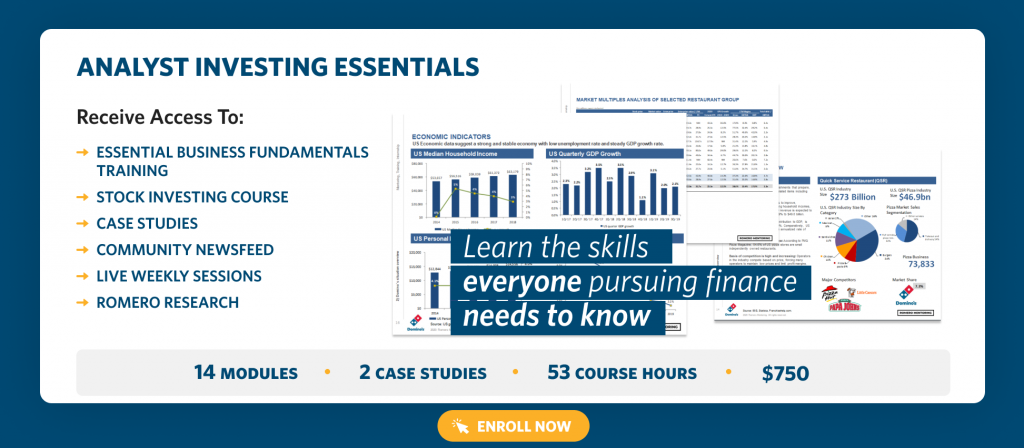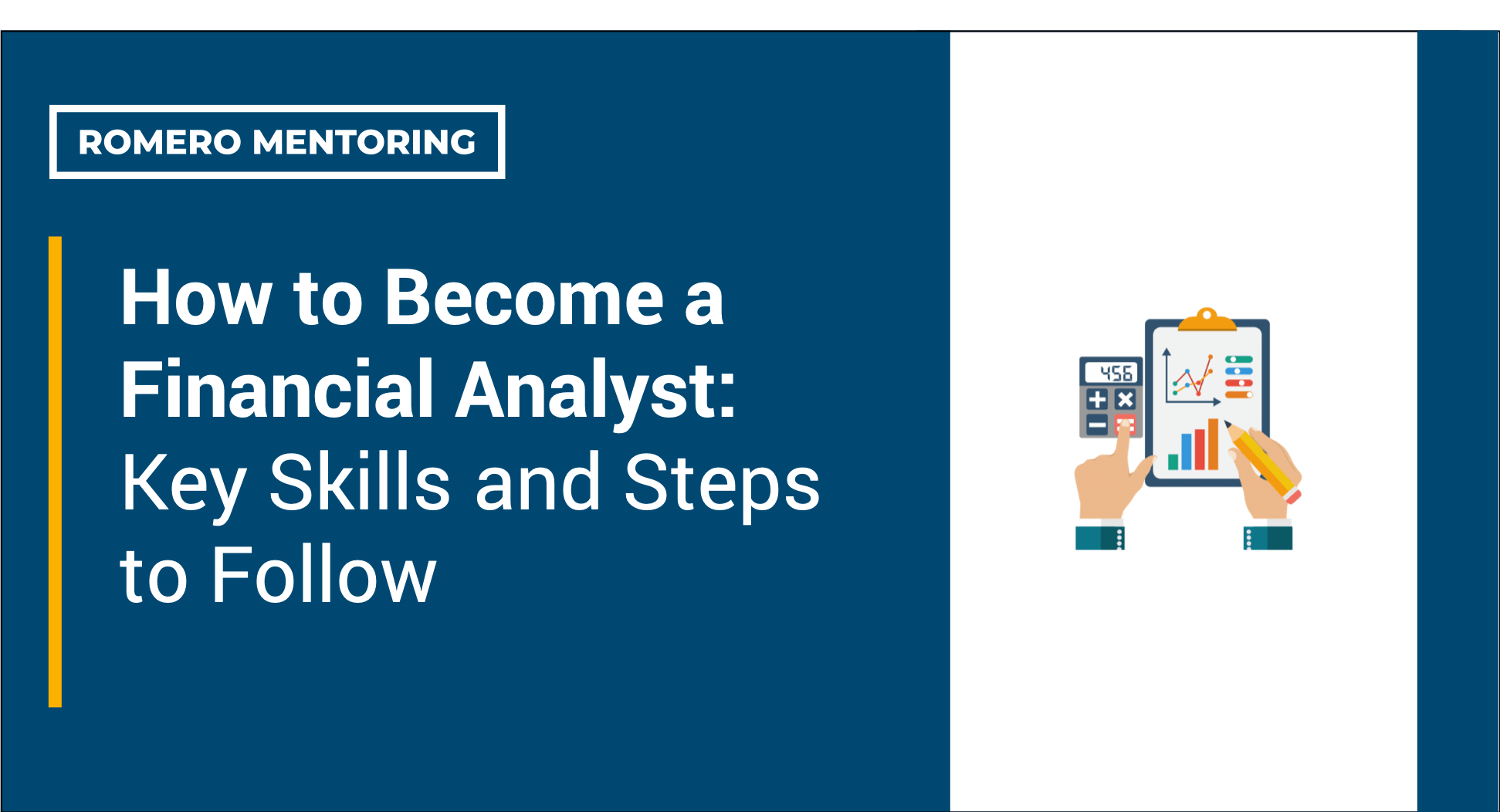Financial analysts are one of the most sought after roles in the financial services industry. Analysts traditionally work for investment banks, hedge funds and private equity firms but can also work in other industries such as insurance. The financial analyst career is highly coveted due to their high compensation packages. If you love high-risk high-reward situations, then you should become a financial analyst.
What does a financial analyst do?
A financial analyst performs a variety of tasks depending on the firm and job role. For example, banks have different needs than insurance companies and brokerages. So the professionals working there will perform tasks according to the firm’s needs.
A typical financial analyst makes buying and selling suggestions based on their firm’s potential gains. They deal with stocks and bonds, and can also work for private organizations and businesses.
Traditionally, a financial analyst will research the economy and possible factors that can change the market trends or business decisions.
In addition to investments, some analysts observe market trends to make recommendations for a business. Companies hire these professionals to acquire help with critical decision making such as merchandising, budgeting, forecasting, etc.
As you can see, to become a financial analyst, you need to learn various technical skills required for the job and be able to analyze and interpret trends, financial models, and more.
Financial analyst job responsibilities
- Analyzing financial news and patterns from multiple sources to analyze future market trend movement.
- Making buy and sell recommendations based on the firm’s capital needs.
- Presenting to company executives and managers to discuss possible investment opportunities.
- Conducting stock analysis on potential companies a firm might want to invest in or acquire.
- Evaluating outcomes for business decisions and investments.
- Maximizing the firm’s earnings by analyzing the business needs.
- Analyzing and identifying potential areas that have possible opportunity.
- Creating financial models to forecast future performance.
How much does a financial analyst make on average?
According to Glassdoor’s latest update, the average salary of a financial analyst is close to $62,000, with $47,000 being the lowest and $84,000 being the highest.
The salary of a financial analyst depends on their experience, job responsibilities, and location of employment. For example, those working in commodities enjoy a median salary of $94,450, while the ones in insurance earn around $74,500 a year. Those working as an analyst in investment banking in New York make on average, $89,572.
Some financial analysts work as fund managers and earn largely by commission. They get paid from a fund’s earnings, which means the better they perform, the more they’ll earn.
According to another study, the top financial analysts earned over $160,000, while the lowest-paid professionals earn less than $50,000 a year.

What qualifications are required to become a financial analyst?
To work in the finance industry, you must obtain a bachelor’s degree in a finance related concentration. This is the minimum requirement to become a financial analyst. Statistics, accounting and economics are the three top majors that can help you get started in this lucrative line of work.
To enjoy a greater degree of success, consider pursuing a Masters in Business Administration (MBA) or Finance.
Having additional finance-related certificates such as a CFA and higher degrees increases the value of these professionals in the market.
After hiring fresh-out-of college graduates, the firms prepare them for challenges through different training programs.
Is a Finance Internship important?
The market trends change on a daily basis, and with that, our talent, knowledge, and skills need to grow as well. The job of a financial analyst is a competitive one, and often tough for new graduates. This is the main reason internships are essential to become a financial analyst; they help you grow in the world of finance.
Through internships, beginners gain practical on-the-job experience in a professional environment.
The biggest benefit of a finance internship is that they combine the classroom knowledge with practical application which is the key to develop the necessary skills to succeed as a financial analyst.
These are the top benefits of internships in this line of work:
Professionalism
Internships help students build soft skills needed to become a financial analyst. A recent LinkedIn survey indicates that more than 57% of professionals consider technical expertise learned from internships more useful than the classroom knowledge.
Networking
Having an internship helps you build a professional social network. When you have an internship, you connect with people who have connections with other professionals in this field. This opens doors to bigger opportunities for you within the firm you’re interning at and beyond.
Professional feedback
When you are an intern at a professional organization, not only will you gain practical experience but also receive professional feedback and criticism. The experts there will help you deal with challenging parts of the job and continually provide feedback on your progress.
Understanding of workplace culture
An internship will help you understand how the organization works. You’ll get to work with top experts in the industry and dive into case studies about workplace structures and previous success. Internships also help you learn all about employee relations which is extremely important for you to adjust in your new job with ease.
Increased marketability
Internships help you gain experience in the financial analyst career, which in return increases your marketability. They give you an edge over your competitors and you become more appealing to the firms that notice you.
How to find financial analyst jobs
The best way to find financial analyst jobs is through internships. Interns who perform well during internships and prove their value to a firm will generally receive an offer to work full-time after their internship has ended.
Apart from that, you can find these jobs through:
Career websites
A few years back, people used to find jobs through job boards which were nothing but a solid surface on the wall, but now they have moved to online formats in the appearance of career websites which makes accessing them all the more easier. These websites post financial analyst job opportunities and more on a daily basis and can help you find plenty of lucrative opportunities.
Job Fairs
Job fairs are another excellent option to find these jobs. Several industries participate in these fairs and are there to hire students like yourself for internships and job opportunities. Don’t forget to dress professionally and bring a batch of resumes to give out to prospective employers.
Referrals
Some employers offer bonuses to employees for bringing talented financial analysts to their company. So if you have a friend or relative working in this field, ask them to let you know about any openings. It may take a while to find a job this way but once you do get a job, it will open many other doors for years to come.
Final Thoughts
The role of a financial analyst is a rewarding career, but your success depends on your effort and ambition. A career in this field offers financial security and opens doors to many exciting opportunities. If you want to become a financial analyst, consider pursuing a bachelor’s degree in finance as this is the first step to entering the world of finance.
Romero Mentoring’s Analyst Prep Program

The Analyst Prep Program teaches the technical and practical skills that investment banks, hedge funds, and private equity & consulting firms look for in a candidate. Students begin with little to no technical skills and develop into fully prepared professionals who can perform as first-year analysts from day one through the program’s training and internship.
Our Story
Luis Romero, founder of Romero Mentoring, spent five years developing an analyst training program that he wishes he had when he was in college – especially one that gave him access to a complete training and finance internship experience that could advance his career. Since no opportunity like this existed to him at the time, Luis went through a stressful recruiting process like so many others have. He successfully landed a full-time job offer upon graduation and worked as an M&A analyst at Credit Suisse in NYC for two years. He then moved to the buy-side as a junior trader and analyst. After gaining experience there, he created his own fund, Romero Capital, and later become an instructor in financial modeling and valuation. After working with hundreds of professionals and analysts, Luis became committed to creating his own mentoring program because he understood the crucial need for a hands-on, personal experience in the competitive world of finance.





